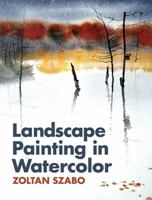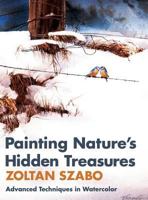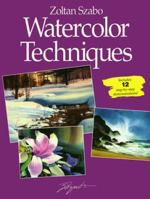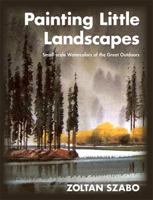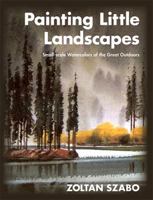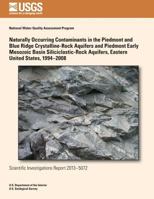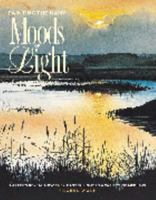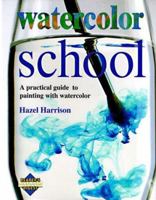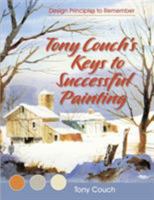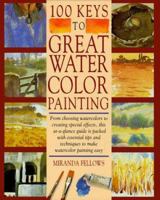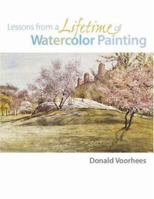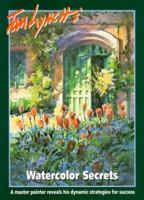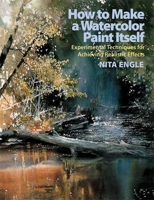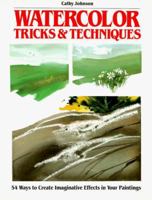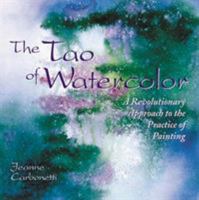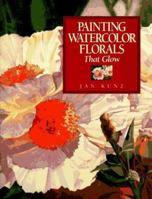Zoltan Szabo Paints Landscapes: Advanced Techniques in Watercolor
Select Format
Select Condition 
More by Zoltán Szabó
Book Overview
In this full-color sequel to his Landscape Painting in Watercolor, Zoltan Szabo shows that there is an abundance of ways to paint a landscape. This internationally acclaimed watercolorist demonstrates how to paint virtually every component of a landscape in a number of ways. He paints a rock, for example, with a split dry brush, with the palette knife, wet-in-wet, with a series of glazes, by scratching and scraping, by texturing with sponges-and by combining several of these techniques. The book contains three helpful sections. The first section, "Notes on Landscape Painting," describes how the artist selects and mixes colors, analyzes the many techniques for which Szabo is famous, and then demonstrates how to paint the seven most common landscape subjects. In these seven segments, Szabo makes valuable suggestions for painting trees; weeds, grass, and flowers; forms of the land ranging from rocks and soil to mountains and hills; still and moving water; snow, ice, and frost; skies and weather, including clouds, storms, rain, fog and mist; and finally, man-made structures. The second section, "Painting Techniques in Color," features 173 full-color studies of all these subjects. Here the reader sees fascinating close-ups that show how this famous watercolorist paints every detail of the landscape: the texture of tree bark and the intricate detail of leaves; the wispy shapes of weeds and grass, and the delicate colors of wildflowers; the bold shapes and rough textures of rocks crowned with moss; the sparkling transparent colors of water, broken by reflections of land and sky colors; the luminous lights and shadows of snow; skies ranging from clear blue to fiery sunsets. The third and final section, "Finished Paintings in Color," highlights 24 of Zoltan Szabo's finest landscapes, full-page size, and in full color. On each adjacent page, two significant sections of that painting are reproduced close to life-size so that the reader can study the painter's techniques. Zoltan Szabo Paints Landscapes is a treasury of techniques and inspiration for the advanced watercolorist. Zoltan Szabo was born in Hungary in 1928 and studied at the National Academy of Industrial Art in Budapest. He emigrated to Canada in 1949, and made a name for himself as one of Canada's foremost landscape painters. In addition to teaching workshops and seminars on watercolor painting, Szabo has exhibited his work in London, Canada, and the United States. Zoltan Szabo's paintings are found in public and private collections worldwide, including those of the prime ministers of Canada and Jamaica and in the National Gallery of Hungary. Other books by Zoltan Szabo include Landscape Painting in Watercolor, Painting Little Landscapes, and Painting Nature's Hidden Treasures. Readers interested in related titles from Zoltan Szabo will also want to see: Creative Watercolor Techniques (ISBN: 1626541361), Landscape Painting in Watercolor (ISBN: 162654901X), Painting Little Landscapes (ISBN: 1626549176), Painting Nature's Hidden Treasures (ISBN: 1626549184 ). This description may be from another edition of this product.
Format:Hardcover
Language:English
ISBN:0823059804
ISBN13:9780823059805
Release Date:January 1977
Publisher:Watson-Guptill Publications
Length:176 Pages
Weight:2.68 lbs.
Related Subjects
Austria Europe Germany History Hungary Leaders & Notable People Modern (16th-21st Centuries) Royalty WesternYou Might Also Enjoy
Customer Reviews
6 customer ratings | 3 reviews
There are currently no reviews. Be the first to review this work.














